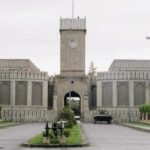Millions of people from Ukraine, Afghanistan and across the Middle East displaced by conflict or persecution could face a perilous winter as freezing temperatures add to the misery already induced by spiraling prices, the lingering impact of the COVID-19 pandemic and extreme weather linked to the climate crisis, UNHCR, the UN Refugee Agency, warned Friday.
UNHCR spokesperson Olga Sarrado, said at a press briefing in Geneva that for many of the world’s forcibly displaced, this coming winter will be far more challenging than in recent years. Many displaced families will have no option but to choose between food and warmth as they struggle to heat their shelters, source warm clothing, and cook hot meals.
Across the Middle East, many displaced Syrians and Iraqis will have to contend with extreme cold and snowstorms once again while millions of Ukrainians uprooted from their homes by the current war are facing winter in displacement or are living in damaged homes or in buildings ill-suited to protect them from the biting cold.
Sarrado said that in Afghanistan, where winter temperatures can easily plunge to -25 degrees Celsius across parts of the country, many displaced and conflict-affected families will be left exposed to the elements.
This comes amid a steep economic decline, and only months after June’s earthquake in south-eastern Paktika and Khost provinces, in which thousands of people experienced devastating loss and damage to their homes.
She said amid an ongoing effort to contain a humanitarian catastrophe, flash flooding and drought also continue to wreak havoc on lives, property and livelihoods, while some regions of Afghanistan continue to report new displacement.
Despite worsening humanitarian needs, the funding outlook for life-saving aid programmes and assistance remains bleak, Sarrado said adding that owing to funding shortfalls, UNHCR has recently been forced to scale back essential programmes in several countries.
UNHCR has launched a global winter fundraising campaign to help forcibly displaced families in the above-mentioned operations meet their most urgent needs during the coldest months of the year, she said.
Funding will help provide those uprooted with warm winter clothing, thermal blankets, home repairs, solar panels and lamps, gas cylinders and cash assistance to cover other essential winter needs, including heating.













